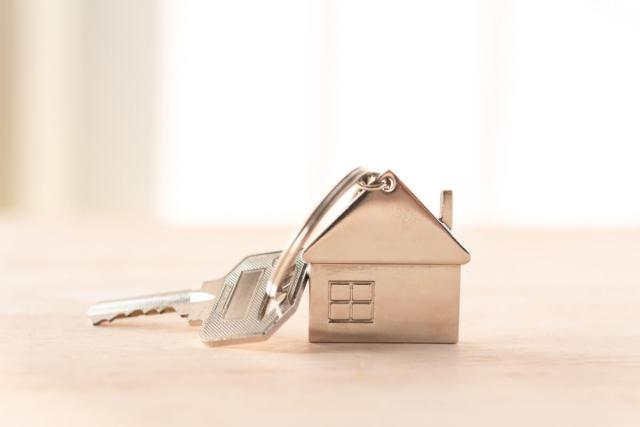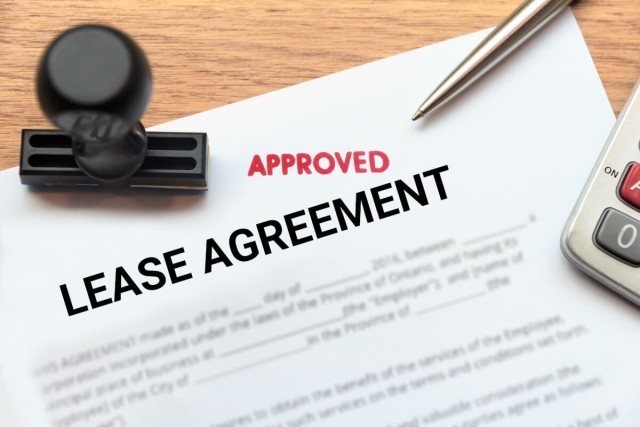Imagine you’re searching for a new apartment. While you’re flipping through different websites and listings with a coffee in hand, something catches your eye: There, in the corner of the screen, is a small disclaimer in the property description that reads, “For rent by owner.”
At face value, that term seems self-explanatory, but what does it really mean to rent from a private owner?
Key Takeaways:
- Renting from a private landlord can offer more flexibility in lease terms, fewer restrictions, and direct communication—sometimes even via personal cell phone or Apartments.com messaging.
- Tenants may be responsible for minor repairs, lawn care, and handling emergencies if the landlord is unavailable, so it’s essential to clarify responsibilities before signing.
- Unlike property managers with legal teams, private landlords may not follow standardized procedures, making it crucial to understand your lease, local laws, and the landlord’s reputation.
What Is a Private Landlord?
In many renters' experiences, renting an apartment typically involves a big property management company and a leasing agent. Renting from a private landlord is a completely different experience.
A private landlord is an individual who owns one or more rental properties but does not necessarily operate a property management company. They manage their properties independently, handling all aspects of the rental process from advertising vacancies, screening tenants, answering inquiries, and collecting rent to maintaining the property and addressing tenant concerns.
What Is “FRBO”?
FRBO, or “For Rent by Owner,” is a term used in the real estate industry to indicate that a rental is managed by a private landlord, bypassing property management companies or real estate agencies. When a property is listed as “For Rent by Owner,” you can expect the property owner to act as your landlord and personal point of contact throughout your lease.
What to Expect: Pros and Cons of Renting From a Private Landlord

The direct approach of renting through a private landlord can offer certain advantages, such as more personalized service and potentially lower costs. Still, it comes with its own set of challenges.
Pros of renting from a private landlord
Easier communication
With a private landlord, there's no middleman between you and the property owner. Many private owners give tenants their personal cell number, making communication more direct and leading to quicker resolutions of any issues that arise. Or, if your rental search lives on Apartments.com, you can communicate with property owners directly from the listing through our messaging platform.
The Apartments.com chat feature makes contacting private landlords even more seamless. Whether to ask questions about the listing, follow up on your application, or learn more about the landlord's pricing and policies, Apartments.com messaging allows you to foster productive conversations and inform your rental search.
Fewer rules
Private landlords may have fewer rules and restrictions than larger property management companies. This might mean more freedom when it comes to things like decorating or owning pets.
More flexibility
Private landlords often have more leeway to negotiate the lease terms, such as length and renewal options, making it potentially easier to tailor the agreement to your needs.
Cons of renting from a private landlord
Fewer amenities
Owner-managed properties might not offer the same amenities as those managed by larger companies, such as a gym, pool, or 24-hour concierge service.
More responsibility
Since independent owners typically don’t employ an entire property management staff, renting from a private landlord might mean taking on more responsibility for the property, such as lawn care or minor repairs.
Less streamlined maintenance and repairs
With larger companies, there's often a dedicated maintenance team. Private landlords might not have the same resources, which could mean longer wait times for repairs.
What to Know Before Renting From a Private Landlord
Understanding the general terms of your lease agreement and local laws will help you uphold your responsibilities as a renter and make sure your landlord does the same.
Local laws and regulations
When you rent from a large property management company, you can assume they have a legal team working to adhere to state laws regarding lease agreements and renters’ rights. Private owners, especially newer landlords, may not have the same standardized processes as an established company.
Understanding local rental laws is crucial to ensuring your rights as a tenant are being protected. These laws cover important aspects like security deposits, rent increases, and eviction procedures.
Lease terms
Read the lease agreement thoroughly. Make sure you understand all terms, including when rent is due, late fees, lease termination, and renewal procedures. Outside of standard legal clauses, each landlord can personalize their lease with terms like quiet hours, pet policies, parking information, and guest rules.
History of the rental
It's wise to know the history of the property you're considering. This includes any previous issues with the building, neighborhood crime rates, and even past renter experiences, if available.
The landlord’s reputation
Researching your prospective landlord can provide valuable insight. Look for reviews, ask previous tenants about their experience, and talk to your potential neighbors to gauge the landlord’s personality and management style.
Key Questions to Ask a Private Landlord

Because private landlords manage their rentals differently from property management companies, it’s important to get a feel for their management style before you sign a lease.
How do they prefer to communicate with tenants?
Private landlords have the freedom to choose how they communicate with tenants, so it’s important to ask. Some landlords prefer texting, while others would rather their tenants use a messaging platform like Apartments.com for questions or inquiries.
How do they collect rent?
Make sure you and your landlord are on the same page about how you’ll pay rent. Paying rent online is the most secure way to send payments, but some landlords may request paper checks.
How do you request maintenance?
It’s important to know how to contact your landlord with maintenance issues before your faucet starts dripping or the HVAC filter needs replacement. Does your potential landlord prefer you contact them directly for maintenance requests, or do they use an online platform like Apartments.com to accept and manage maintenance requests?
What maintenance are you responsible for?
Unlike property management companies, private landlords are typically the only ones managing a property and may ask tenants to take care of basic maintenance. Are you expected to mow the lawn or change the smoke detector batteries? Will your landlord unclog your shower drain, or is that something they expect you to do?
Who do you contact for emergency maintenance if the landlord is unavailable?
Your heat goes out in the middle of winter, but your landlord is on a family ski trip in Vail with minimal cell service. What do you do?
Know what your potential landlord will expect from you in case of emergencies. They may request that you contact experts yourself, in which case you should ask for a list of contacts.
How are utilities set up?
Are utilities included, or do you pay monthly bills on top of your rent? Do you set up and pay utilities yourself, or do you reimburse your landlord each month?
Where do you and your guests park?
If the property has a private driveway, this is straightforward. Otherwise, make sure you know the parking policy. Where will you park? Do you need a parking pass? Is there reserved guest parking, or is all parking first-come-first-served?
What’s the pet policy?
If you have a pet or are planning to adopt soon, make sure you ask key pet parent questions. If the property is pet-friendly, how much can you expect to pay in pet deposits and fees? Does the landlord have breed or size restrictions? Does the landlord limit the number of pets allowed, and what happens if you decide to adopt another pet?
Understanding a private landlord’s policies, procedures, and ground rules can help you decide on a rental, and covering all your bases early on can help avoid frustration later on in the application and leasing process.
Rent from a Private Landlord on Apartments.com
Renting from a private landlord can be a great option for many renters, but it's essential to do your homework and ensure you're fully informed before making a decision. By following these guidelines, you can navigate the world of private owner rentals with confidence and find the perfect place to call home.
Still have questions about privately-owned properties? Explore our blog for more helpful renter resources. Whether you need help reviewing your lease agreement, negotiating rent, or making customizations to your rental, we’re your one-stop shop for all things apartment living.
This article was originally published on November 8, 2023, by Sarah Catherine Fordham.
FAQs for Renters
Is it riskier to rent from a private landlord rather than a property management company?
It can be riskier if you don’t do proper vetting. Unlike property managers, private landlords may lack formal systems for repairs or leases, so make sure to check references and have a detailed lease in place.
How much negotiation room do I have with a private landlord compared to a big property manager?
Private landlords often have more flexibility on lease terms, rent, or fees. Don’t be afraid to ask for adjustments before signing.
Are there hidden costs or responsibilities when renting from a private landlord?
Possibly. Some landlords shift tasks like yard work or utilities to the tenant, so ask upfront what's included in rent.
What are the advantages of renting from a private landlord?
You may get more personal communication, flexible terms, and fewer strict rules. It’s often a less corporate experience.
How do I verify the landlord is legitimate and reliable?
Ask for proof of ownership and request references from past tenants. You can also search public records or online reviews.






